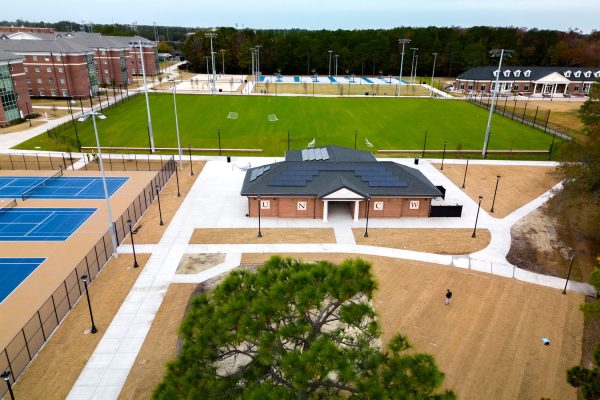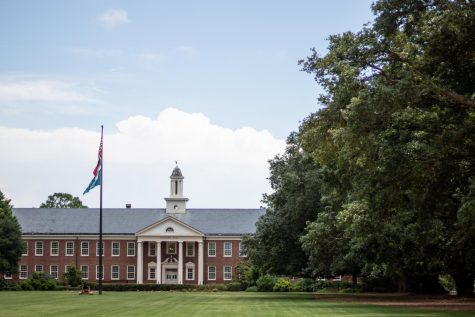UNCW: a water conscious community
February 20, 2008
As North Carolina and much of the Southeast continue to experience a serious drought, some communities, such as Durham and Atlanta, face dire circumstances that include running out of drinking water. As one of our region’s largest living and learning communities, and a leading local employer, UNCW has implemented numerous ways to conserve water in all of our operations.
Two major initiatives have had significant impacts on the amount of water we save. In partnership with our food services vendor, ARAMARK, the university discontinued the use of washable food service trays beginning Jan. 1, a decision that conserves about 8,800 gallons of water daily.
We have had few complaints from students, faculty or staff about our “trayless” initiative. Since it requires 3.5 gallons of water and 1.5 kilowatts of energy just to wash one tray, going trayless has made a real impact at UNCW. Although it is less convenient to do without trays, our community is committed to supporting sustainable changes to preserve the resources we all share.
In another drought-related initiative, UNCW has discontinued landscape watering except for hand-watering new plants to make sure that they thrive. This effort has resulted in the largest reduction of water consumption on campus. With these initiatives, and other conservation efforts, the campus has achieved a savings of approximately 50 percent in total water usage over the past six to eight months.
Such extraordinary results are particularly remarkable because we opened several new buildings this past year that increased water demand. The university’s challenge now is to continue conserving as much water as possible, even when we are able to resume managed irrigation as drought conditions improve in the area. As the weather warms, we will need to irrigate to preserve the plants that contribute to the beauty and ecology of our arboretum campus.
I urge each UNCW student, faculty member and staff member to make a personal commitment to water conservation. Here are some suggestions for little changes that can make a big difference:
• Run your washing machine and dishwasher only when they are full; you could save 1,000 gallons a month.
• Turn off the tap instead of letting it run while you are soaping your hands or brushing your teeth and save four gallons a minute.
• Time your shower to keep it under 5 minutes. This will save another 1,000 gallons per month.
If you are interested in other water-saving tips, visit www.wateruseitwisely.com. To learn more about a variety of sustainability efforts underway at UNCW, see www.uncw.edu/sustainability. I am very proud of our university’s strong commitment to water conservation; UNCW is a leader in saving one of our region’s most valuable resources. Let’s keep up the good work!





















